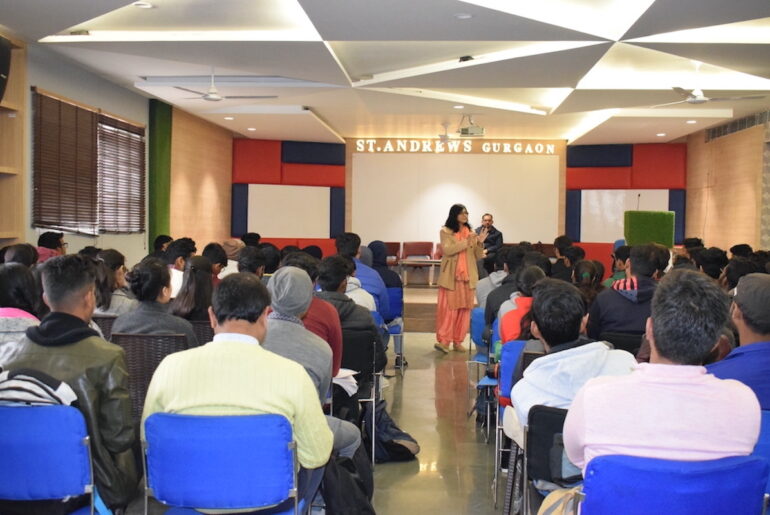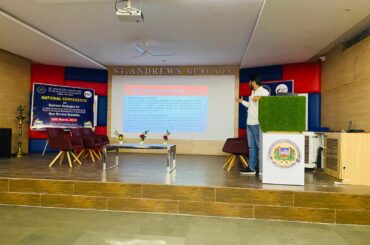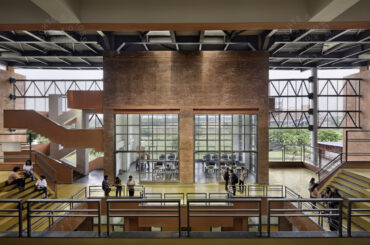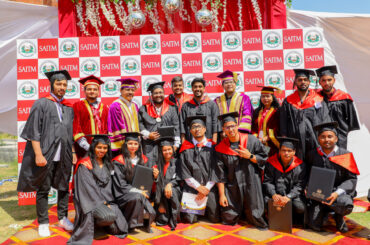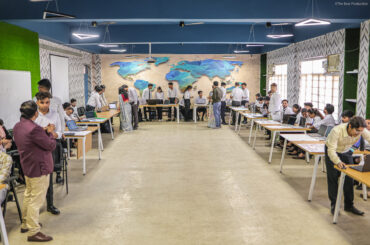BTech Courses
B Tech courses, or Bachelor of Technology, are four-year undergraduate programs focusing on various engineering and technology disciplines. They combine theoretical knowledge with practical skills through coursework, labs, and industrial training. Specializations include Computer Science, Mechanical, Electrical, Civil, and IT, preparing graduates for diverse career opportunities.
B Tech courses are diverse and cater to a wide range of interests and industries including engineering education.
Here are some of the primary BTech specializations available in India:
Computer Science and Engineering [CSE]
Focus: Software development, algorithms, data structures, computer systems, artificial intelligence, and data science.
Key Subjects: Programming, Data Structures, Algorithms, Operating Systems, Database Management, Computer Networks, AI, Machine Learning.
Mechanical Engineering
Focus: Design, manufacturing, and maintenance of mechanical systems.
Key Subjects: Thermodynamics, Fluid Mechanics, Materials Science, Manufacturing Processes, Machine Design, Heat Transfer.
Electrical and Electronics Engineering {EEE}
Focus: Electrical systems, electronics, and electromagnetism.
Key Subjects: Circuit Theory, Control Systems, Electrical Machines, Power Systems, Digital Electronics, Signal Processing.
Civil Engineering
Focus: Design, construction, and maintenance of infrastructure projects like buildings, roads, bridges, and dams.
Key Subjects: Structural Analysis, Concrete Technology, Geotechnical Engineering, Transportation Engineering, Environmental Engineering.
Electronics and Communication Engineering (ECE)
Focus: Electronic devices, communication systems, and signal processing.
Key Subjects: Analog and Digital Circuits, Communication Systems, VLSI Design, Embedded Systems, Antennas and Wave Propagation.
Information Technology (IT)
Focus: Application of technology in information processing and management.
Key Subjects: Software Development, Data Management, Networking, Cyber security, Web Technologies, Information Systems.
Some of the most opted courses in India and St. Andrews college or different Engineering college or Management colleges are as follows:-
BTech Course Duration
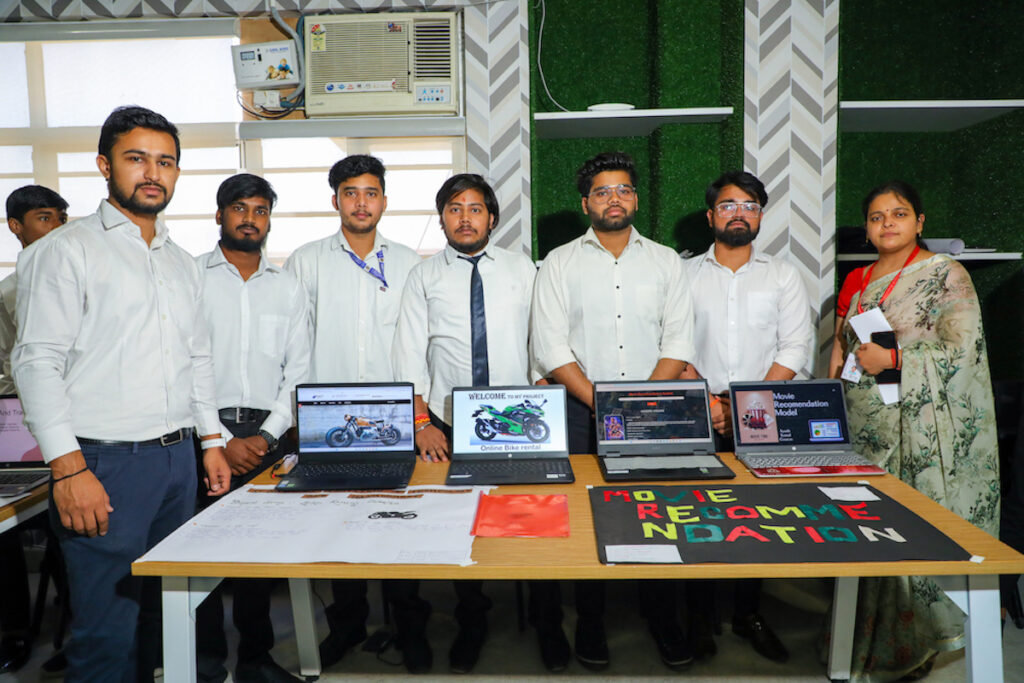
BTech (Bachelor of Technology) is a four-year undergraduate degree program in India, designed to impart specialized knowledge and skills in various engineering disciplines. The course duration includes eight semesters, with each semester typically lasting six months.
B Tech courses focus on a blend of theoretical learning, practical laboratory work, industry-oriented projects, and internships to prepare students for careers in engineering, technology, and related fields.
Some universities also offer integrated BTech-MTech programs spanning five years, combining undergraduate and postgraduate studies. B Tech courses in these integrated programs provide a structured curriculum that ensures comprehensive education and skill development, equipping graduates with the expertise required to tackle real-world engineering challenges.
B Tech Courses Eligibility Criteria
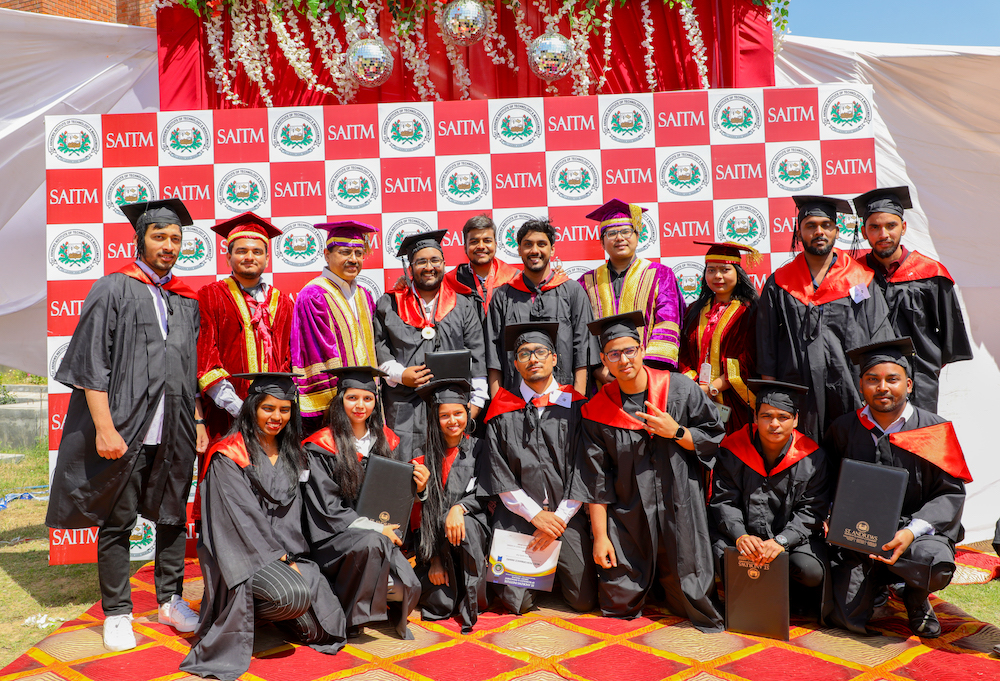
Here is a comprehensive overview of the typical B Tech courses eligibility criteria:
Educational Qualification:
Candidates must have completed their 10+2 or equivalent examination from a recognized board of education. B Tech courses typically require Physics, Chemistry, and Mathematics (PCM) at the 10+2 level, as these subjects form the foundational knowledge base for most engineering programs.
Minimum Marks:
Most institutions stipulate a minimum aggregate score in the 10+2 examination. Generally, candidates need to have secured at least 50-60% aggregate marks in PCM. Some of the more prestigious institutions or highly competitive programs may require a higher percentage. Additionally, specific state-level regulations might influence these requirements, especially for reserved category candidates.
Entrance Exams:
A crucial component of the eligibility criteria is qualifying in relevant BTech entrance examinations. The Joint Entrance Examination (JEE) Main is the most widely accepted entrance exam across India, and qualifying this exam is a prerequisite for many top engineering colleges. Those aiming for the Indian Institute of Technology (IITs) need to qualify for both JEE Main and JEE Advanced. Besides JEE, there are several state-level entrance examinations like MHT CET (Maharashtra), KCET (Karnataka), TNEA (Tamil Nadu), and institutional exams like BITSAT for BITS Pilani and VITEEE for VIT Vellore. The scores from these exams are critical for securing a seat in the desired engineering college.
Age Limit:
Typically, candidates should be at least 17 years old at the time of admission. While many institutions do not enforce a strict upper age limit, some entrance examinations like JEE Main have an age criterion, generally stating that candidates should not be older than 25 years. There are usually relaxations in the upper age limit for reserved categories (SC/ST/OBC).
Additional Criteria:
Reservation Criteria: As per government regulations, there are reserved seats for candidates from SC/ST/OBC categories, as well as for those with disabilities. These candidates often have a relaxation in the minimum marks required and sometimes in the age limit.
Domicile Requirements: Some state-level entrance exams and colleges have domicile criteria, meaning they reserve a certain number of seats for candidates who are residents of the state.
Personal Interviews/Counseling: Certain private institutions might have an additional round of personal interviews or counseling sessions to evaluate the candidate’s suitability for the course.
BTech Admission Process
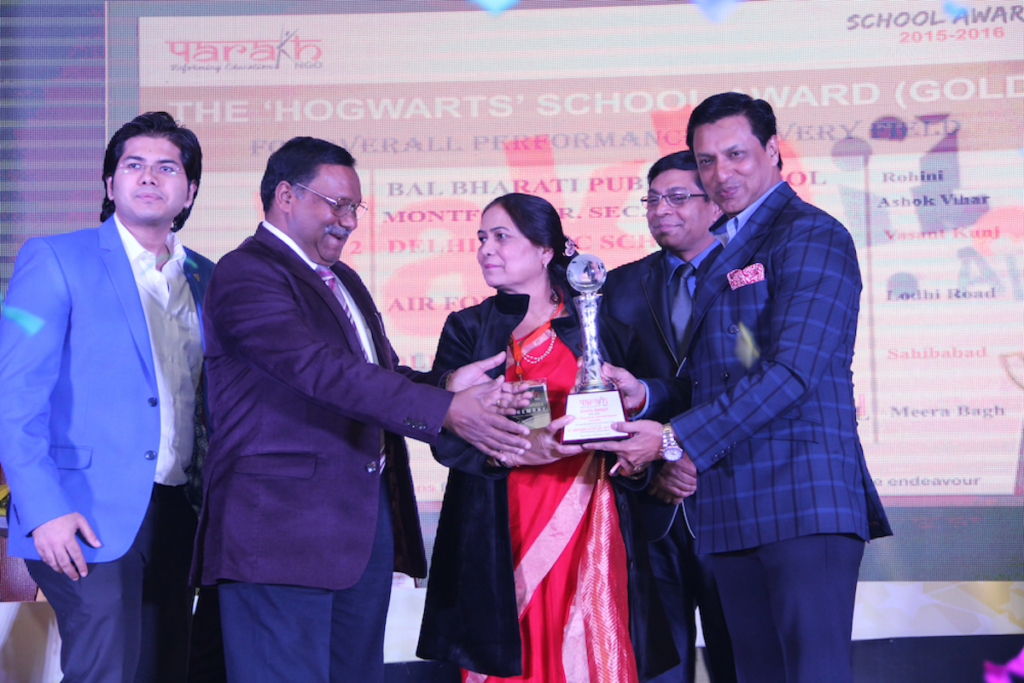
Here is a detailed overview of the typical BTech admission process:
Understanding Eligibility Criteria:
Before applying, candidates should ensure they meet the eligibility criteria, which generally include:
Completion of 10+2 or equivalent with Physics, Chemistry, and Mathematics (PCM).
Minimum aggregate marks (usually between 50-60%).
Age requirements, if any.
Qualifying relevant entrance exams.
Entrance Exams;
Candidates must appear for and qualify in the relevant BTech entrance exams. These include:
National Level Exams: JEE Main for admission to NITs, IIITs, and other centrally funded institutions. JEE Advanced is for admission to the IITs.
State Level Exams: Such as MHT CET (Maharashtra), KCET (Karnataka), WBJEE (West Bengal), etc., which provide entry to state engineering colleges.
University/Institute Specific Exams: Like BITSAT for BITS Pilani, VITEEE for VIT Vellore, etc.
Application Process:
Register for Entrance Exams: Candidates must register for the entrance exams by filling out the online application forms available on the official websites of the exams.
Application Form: Fill out the application forms for the colleges or universities you are interested in. This can often be done online on the respective institution’s website.
Upload Documents: Required documents such as mark sheets, photographs, and signatures need to be uploaded as per the guidelines.
Appear for Entrance Exams:
Admit Cards: Download and print the admit cards for the entrance exams.
Examination: Attend the entrance exams on the scheduled dates. Ensure to follow the exam instructions carefully.
Results and Rank Cards:
After the entrance exams, results will be declared on the official websites. Candidates need to download their rank cards and scorecards.
Counseling and Seat Allotment:
Registration for Counseling: Post result declaration, register for the counseling process of the respective exam (e.g., JoSAA for JEE Main and JEE Advanced, state-specific counseling like KEA for KCET).
Choice Filling: Candidates need to fill in their choices of colleges and courses in order of preference.
Document Verification: Attend the document verification process with all necessary original documents and their photocopies.
Seat Allotment: Based on the rank and choices filled, seats will be allotted to candidates. They will be notified of the college and course allotted.
Acceptance of Seat: Candidates need to accept the seat, pay the admission fee, and confirm their admission. If not satisfied with the allotment, they may participate in subsequent rounds of counseling.
Admission Confirmation:
Reporting to College: After seat allotment, candidates must report to the allotted college within the specified time frame.
Submission of Documents: Submit required documents, such as 10th and 12th mark sheets, entrance exam scorecards, allotment letter, category certificate (if applicable), and other relevant documents.
Payment of Fees: Pay the requisite admission and tuition fees to confirm the seat.
Commencement of Classes:
After completing the admission formalities, attend the orientation session if provided by the college.
Begin attending classes as per the academic schedule provided by the institution.
Top BTech Entrance Exams

Here are some of the top BTech entrance exams in India:
Joint Entrance Examination (JEE) Main:
Conducting Body: National Testing Agency (NTA)
Eligibility: 10+2 with Physics, Chemistry, and Mathematics
Frequency: Twice a year (January and April)
Purpose: Admission to NITs, IIITs, and other centrally funded technical institutions.
Joint Entrance Examination (JEE) Advanced:
Conducting Body: One of the IITs (rotational basis)
Eligibility: Top qualifiers of JEE Main
Frequency: Once a year
Purpose: Admission to IITs and some other premier institutes.
BITS Admission Test (BITSAT):
Conducting Body: Birla Institute of Technology and Science (BITS), Pilani
Eligibility: 10+2 with Physics, Chemistry, and Mathematics
Frequency: Once a year
Purpose: Admission to BITS Pilani, Goa, and Hyderabad campuses.
VIT Engineering Entrance Examination (VITEEE):
Conducting Body: Vellore Institute of Technology (VIT)
Eligibility: 10+2 with Physics, Chemistry, and Mathematics/Biology
Frequency: Once a year
Purpose: Admission to VIT Vellore and Chennai campuses.
Amrita Engineering Entrance Examination (AEEE):
Conducting Body: Amrita Vishwa Vidyapeetham
Eligibility: 10+2 with Physics, Chemistry, and Mathematics
Frequency: Once a year
Purpose: Admission to Amrita School of Engineering campuses.
KIITEE:
Conducting Body: Kalinga Institute of Industrial Technology (KIIT)
Eligibility: 10+2 with Physics, Chemistry, and Mathematics/Biology
Frequency: Once a year
Purpose: Admission to KIIT University.
UPESEAT:
Conducting Body: University of Petroleum and Energy Studies (UPES)
Eligibility: 10+2 with Physics, Chemistry, and Mathematics
Frequency: Once a year
Purpose: Admission to UPES Dehradun.
BTech Colleges Fees Structure
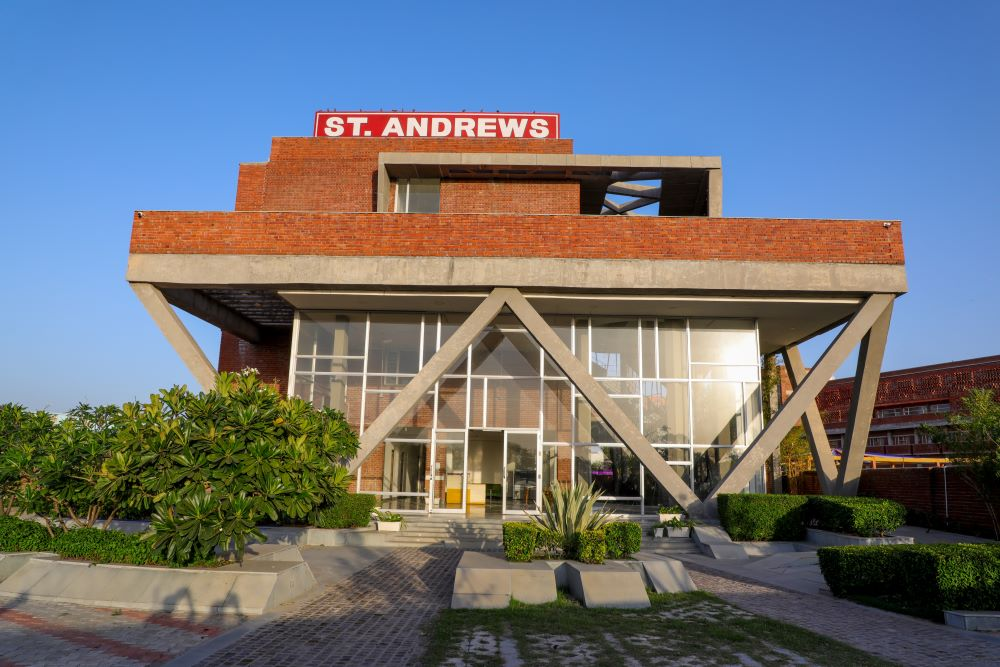
Here’s a general overview:
Government Institutions:
IITs (Indian Institutes of Technology):
Fees: Generally around Rs. 2-3 lakhs per annum for undergraduate programs.
Additional Costs: Hostel fees, mess charges, and other incidental expenses.
St. Andrews Institute of Technology & Management, Gurgaon:
Fees: ₹98,500 per year.
Additional Costs: Hostel fees, mess charges, and transportation fees.
NITs (National Institutes of Technology):
Fees: Approximately Rs. 1-2 lakhs per annum.
Additional Costs: Similar to IITs, including hostel and mess fees.
IIITs (Indian Institutes of Information Technology):
Fees: Can range from Rs. 1-2 lakhs per annum.
Additional Costs: Hostel, mess, and other charges.
Private Universities and Institutes:
BITS Pilani:
Fees: Around Rs. 4-6 lakhs per annum.
Additional Costs: Hostel fees, mess charges, etc.
VIT Vellore:
Fees: Approximately Rs. 1.75 – 2.25 lakhs per annum.
Additional Costs: Hostel accommodation, food, and other fees.
Amrita School of Engineering:
Fees: Around Rs. 2.5 – 3.5 lakhs per annum.
Additional Costs: Similar to other private institutions, including hostel and mess charges.
KIIT University:
Fees: Approximately Rs. 2-3 lakhs per annum.
Additional Costs: Hostel accommodation, food charges, etc.
UPES Dehradun:
Fees: Varies but generally around Rs. 2-3 lakhs per annum.
Additional Costs: Hostel fees, mess charges, and other expenses.
Fee Structure Considerations:
Scholarships and Financial Aid: Many institutions offer scholarships based on merit or financial need, which can significantly reduce the overall cost for students.
Hostel and Mess Charges: These are usually additional costs and can vary based on the amenities provided by the institution.
Additional Expenses: Books, laboratory charges, project fees, etc., are often not included in the tuition fees and should be budgeted separately.
B Tech Courses Specializations
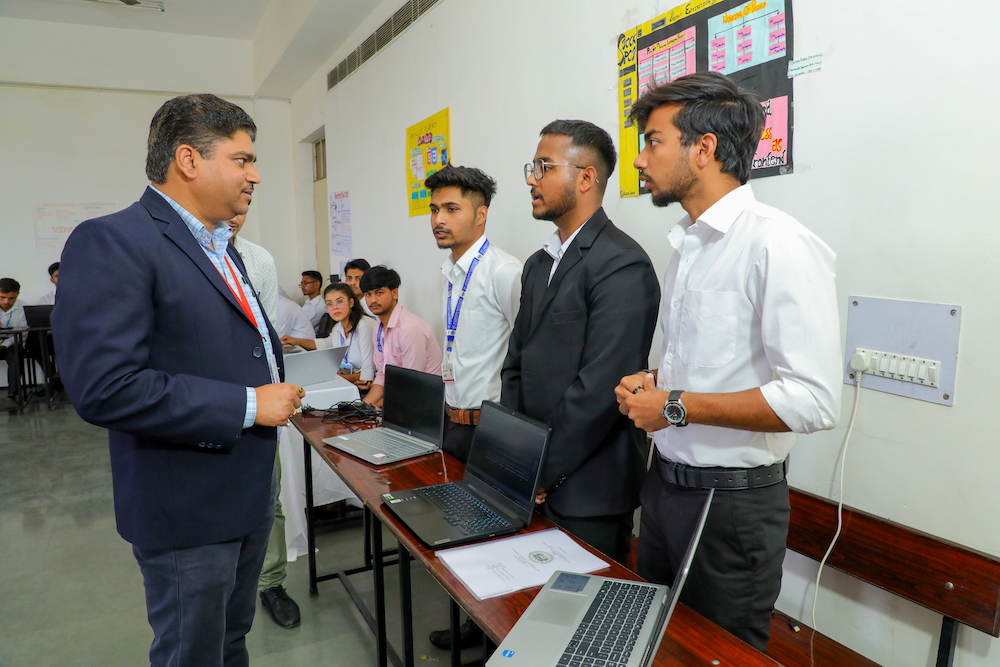
Here are some popular BTech Programme specializations:
Computer Science and Engineering (CSE):
Focuses on software development, programming, algorithms, data structures, ai, machine learning, etc.
Electronics and Communication Engineering {ECE}
Deals with electronic circuits, communication systems, signal processing, embedded systems, VLSI design, etc.
Mechanical Engineering;
Involves the study of machinery, manufacturing processes, thermodynamics, fluid mechanics, materials science, etc.
Civil Engineering:
Covers structural engineering, construction management, transportation engineering, environmental engineering, geotechnical engineering, etc.
Electrical Engineering:
Includes power systems, control systems, electrical machines, renewable energy systems, instrumentation, etc.
Information Technology:
Similar to CSE but with a focus on IT infrastructure, networking, database management, cybersecurity, software engineering, etc.
Chemical Engineering:
Focuses on chemical processes, plant design, biochemical engineering, polymers, environmental engineering, etc.
Aeronautical Engineering:
Involves aircraft design, aerodynamics, avionics, propulsion systems, aerospace structures, etc.
Biotechnology:
Integrates biological sciences with engineering principles for applications in healthcare, agriculture, pharmaceuticals, etc.
Petroleum Engineering:
Focuses on exploration, extraction, refining, and processing of petroleum and natural gas resources.
Automobile Engineering:
Automobile engineering encompasses vehicle design, manufacturing, automotive systems, automotive electronics, and alternative fuels.
Robotics and Automation Engineering:
Involves the design, construction, operation, and use of robots, automated systems, artificial intelligence, etc.
Environmental Engineering:
Focuses on sustainable development, pollution control, waste management, water resources management, etc.
Instrumentation Engineering:
Involves instrumentation systems, control systems, sensors, process control, industrial automation, etc.
Mining Engineering:
Covers mining operations, mineral extraction, mine design, environmental impact assessment, etc.
B Tech Subjects

Here are some common B Tech courses subjects categorized by their respective disciplines:
Computer Science Engineering (CSE):
Programming Languages: C, C++, Java, Python
Data Structures and Algorithms
Database Management Systems (DBMS)
Operating Systems
Computer Networks
Software Engineering
Artificial Intelligence and Machine Learning
Cybersecurity
Electronics and Communication Engineering
Analog and Digital Electronics
Signals and Systems
Electronic Circuits
Communication Systems
Microprocessors and Microcontrollers
VLSI Design
Digital Signal Processing (DSP)
Embedded Systems
Mechanical Engineering,
Engineering Mechanics
Thermodynamics
Fluid Mechanics
Strength of Materials
Manufacturing Processes
Machine Design
Automobile Engineering
Robotics
Civil Engineering,
Structural Analysis
Concrete Technology
Surveying
Geotechnical Engineering
Transportation Engineering
Environmental Engineering
Construction Management
Electrical Engineering,
Electrical Machines
Power Systems
Control Systems
Renewable Energy Sources
Power Electronics
High Voltage Engineering
Electrical Measurements and Instrumentation
Chemical Engineering;
Chemical Process Calculations
Fluid Mechanics and Unit Operations
Chemical Reaction Engineering
Mass Transfer Operations
Heat Transfer
Process Control and Dynamics
Environmental Engineering
Information Technology
Data Structures
Web Technologies
Network Security
Cloud Computing
Mobile Computing
Big Data Analytics
Software Testing and Quality Assurance
Biotechnology,
Cell Biology
Microbiology
Genetic Engineering
Bioinformatics
Bioprocess Engineering
Enzyme Technology
Biomedical Instrumentation
Aerospace Engineering:
Aerodynamics
Flight Mechanics
Spacecraft Technology
Structural Design and Analysis
Propulsion
Avionics
Environmental Engineering;
Environmental Chemistry
Water and Wastewater Treatment
Air Pollution Control
Solid Waste Management
Environmental Impact Assessment
Top B Tech Courses Preffred in India
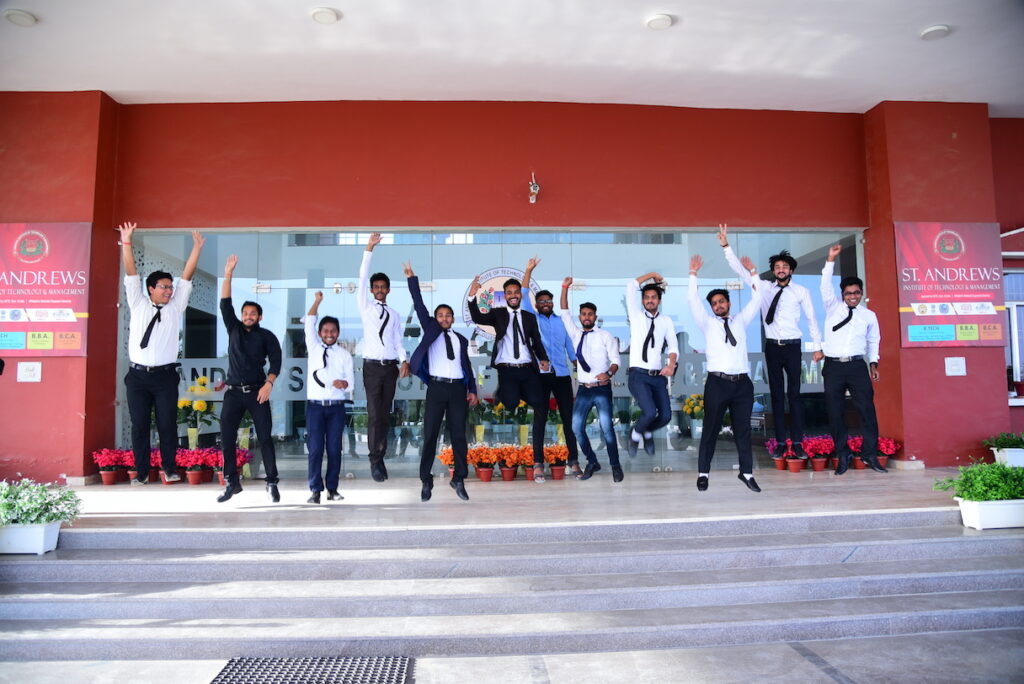
The top B.Tech courses preferred in India span a variety of engineering disciplines, reflecting current industry demands and technological advancements.
Here are some of the most popular B.Tech specializations:
Computer Science and Engineering (CSE)
Focus: Software development, algorithms, data structures, artificial intelligence, machine learning, cybersecurity.
Demand: High due to the booming IT and software industry.
Electronics and Communication Engineering [ECE]
Focus: Communication systems, electronic circuits, VLSI, signal processing.
Demand: Consistently high due to the need for communication technology and consumer electronics.
Mechanical Engineering{ME}
Focus: Mechanics, thermodynamics, robotics, manufacturing processes, automotive design.
Demand: Steady, as it forms the backbone of manufacturing and industrial sectors.
Electrical and Electronics Engineering (EEE)
Focus: Electrical circuits, power systems, control systems, renewable energy.
Demand: High due to the growing need for power management and renewable energy solutions.
Information Technology {IT}
Focus: Software development, database management, network security, web technologies.
Demand: High, similar to CSE, with a focus on IT services and management.
Civil Engineering;
Focus: Structural engineering, construction management, geotechnical engineering, environmental engineering.
Demand: Steady due to ongoing infrastructure development projects.
Chemical Engineering
Focus: Chemical processes, biochemistry, materials science, process engineering.
Demand: Moderate, with specific industries such as pharmaceuticals, petrochemicals, and materials science driving the need.
Aeronautical Engineering
Focus: Aircraft design, aerodynamics, avionics, propulsion systems.
Demand: Niche but growing with advancements in aviation and space exploration.
Biotechnology
Focus: Genetic engineering, bioprocess technology, bioinformatics, molecular biology.
Demand: Growing, especially in the healthcare, pharmaceutical, and agricultural sectors.
Data Science and Artificial Intelligence
Focus: Big data analytics, machine learning, data mining, AI applications.
Demand: Rapidly increasing due to the exponential growth of data-driven decision-making in various industries.
Environmental Engineering
Focus: Environmental impact assessment, waste management, sustainable development.
Demand: Growing due to increased emphasis on sustainability and environmental protection.
Automobile Engineering
Focus: Vehicle design, manufacturing, and maintenance, automotive electronics.
Demand: Consistent, driven by the automotive industry’s growth and innovation.
Robotics and Automation Engineering
Focus: Robotics design, automation systems, industrial automation, AI in robotics.
Demand: Increasing with the rise of automation and Industry 4.0 initiatives.
Top Government BTech Colleges in India
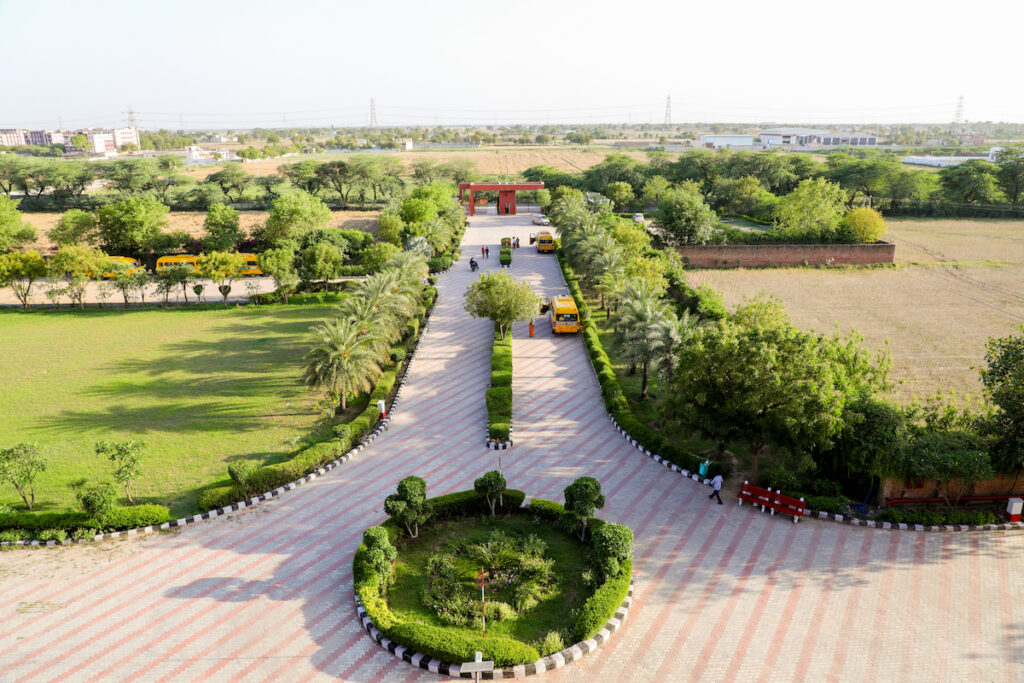
Here are some of the top government BTech colleges in India renowned for their academic excellence, infrastructure, and placement records:
Indian Institutes of Technology (IITs)
Location: Mumbai, New Delhi, Kanpur, Chennai, Kharagpur
Highlights: Consistently ranked among the top engineering institutions in India, excellent faculty, strong industry connections, and high placement rates.
St. Andrews Institute of Technology and Management, Gurgaon;
Location: Located in Gurgaon, Haryana
Highlights: SAITM offers undergraduate programs including Btech in various specializations such as Computer Science Engineering (CSE), Computer Science Technology (CST), Computer Science Engineering in Artificial Intelligence and Machine Learning (AI/ML), Computer Science Engineering in Data Science, Electronics & Telecommunication Engineering.
National Institutes of Technology (NITs)
Location: Tamil Nadu, Karnataka, Kerala, Telangana
Highlights: Known for its excellent academic programs, strong faculty, and good placement statistics.
College of Engineering, Pune (COEP)
Location: Pune, Maharashtra
Highlights: One of the oldest engineering colleges in India, known for its strong academic programs and good placement records.
Delhi Technological University (DTU)
Location: New Delhi
Highlights: Offers diverse engineering programs, strong faculty, and good placement support.
Netaji Subhas University of Technology (NSUT)
Location: New Delhi
Highlights: Known for its quality education, strong academic curriculum, and good placements.
Top Private BTech Colleges in India

Here are some of the top private BTech colleges in India, known for their academic excellence, infrastructure, faculty, and placement records:
Birla Institute of Technology and Science (BITS) Pilani
Location: Pilani, Rajasthan (with campuses in Goa, Hyderabad, and Dubai)
Highlights: Renowned for its academic rigor, strong industry connections, and excellent placement records. Admission through BITSAT.
St. Andrews Institute of Technology and Management, Gurgaon:
Location: Located in Gurgaon, Haryana
Highlights: SAITM offers undergraduate programs including Btech in various specializations such as Computer Science Engineering (CSE), Computer Science Technology (CST), Computer Science Engineering in Artificial Intelligence and Machine Learning (AI/ML), Computer Science Engineering in Data Science, Electronics & Telecommunication Engineering.
Vellore Institute of Technology (VIT)
Location: Vellore, Tamil Nadu (with campuses in Chennai, Bhopal, and Amaravati)
Highlights: Known for its high-quality education, state-of-the-art infrastructure, and good placement records. Admission through VITEEE.
Thapar Institute of Engineering and Technology
Location: Patiala, Punjab
Highlights: Known for its strong academic programs, good research opportunities, and robust placement support. Admission through JEE Main or university entrance exam.
PES University
Location: Bangalore, Karnataka
Highlights: Offers quality education, strong faculty, and excellent placement support. Admission through PESSAT or KCET.
BTech Course Scope
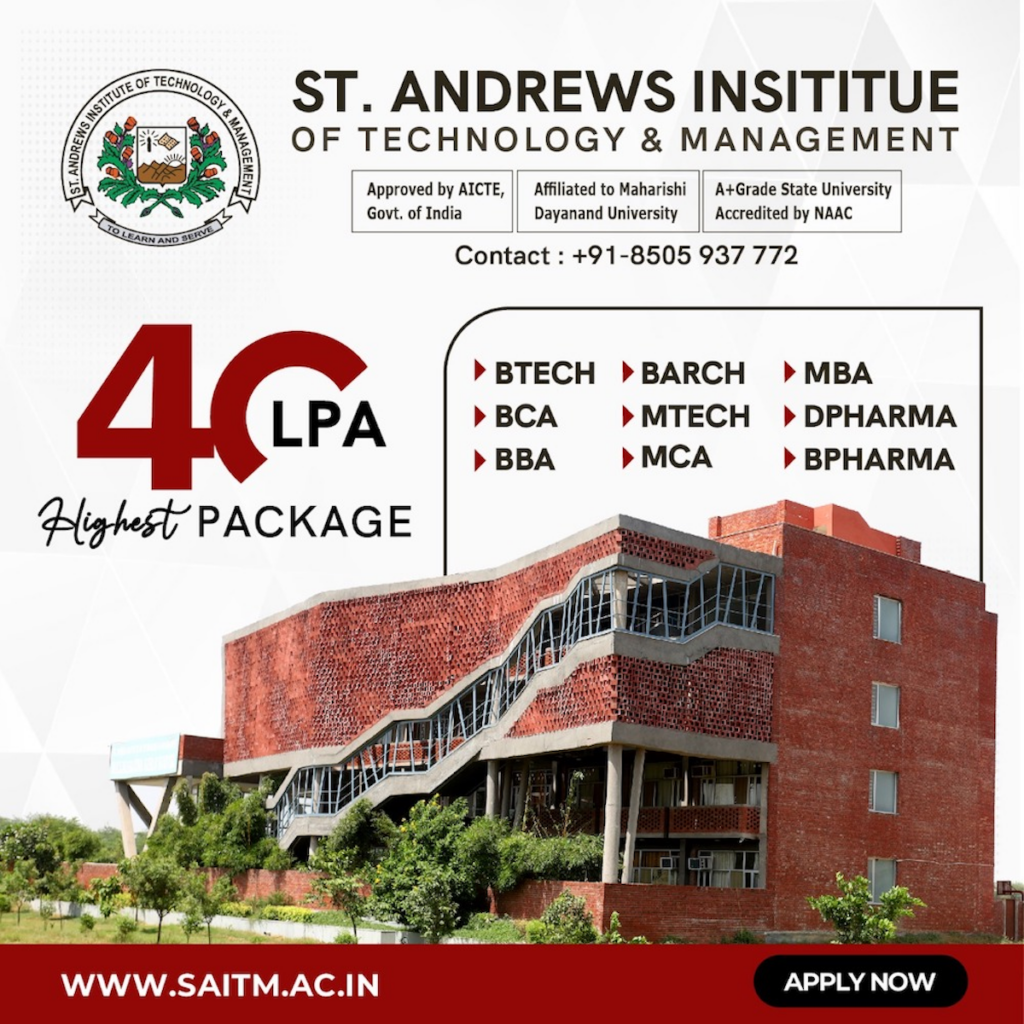
Here are the key points outlining the scope of B Tech courses:
Diverse Specializations:
B Tech courses offers specializations in fields like Computer Science, Mechanical, Electrical, Civil, and more, catering to various industry needs.
Industry Demand:
High demand across industries such as IT, manufacturing, telecommunications, and automotive for skilled engineers.
Career Options:
Abundant career paths including software development, data analytics, cybersecurity, electronics, and management roles.
Global Opportunities:
Scope for international careers with qualifications recognized worldwide.
Innovation and Research:
Opportunities for innovation, research, and development in emerging technologies.
Entrepreneurship:
Potential for entrepreneurship and startup ventures based on technological innovations.
Competitive Salaries:
Competitive salary packages and perks, especially in specialized roles and top companies.
Continuous Learning:
Scope for continuous learning and skill development to stay relevant in a dynamic technological landscape.
Job Opportunities after BTech in CSE

A B.Tech in Computer Science Engineering (CSE) opens up a plethora of job opportunities across various industries.
Here are some of the most sought-after career paths for CSE graduates:
Software Developer/Engineer
Role: Designing, coding, testing, and maintaining software applications.
Industries: IT services, software development firms, tech startups, financial services.
Web Developer
Role: Creating and maintaining websites and web applications.
Industries: E-commerce, media, digital marketing, IT services.
Data Scientist/Analyst
Role: Analyzing and interpreting complex data to help companies make informed decisions.
Industries: Finance, healthcare, retail, tech companies.
Cybersecurity Analyst
Role: Protecting systems and networks from cyber threats.
Industries: Banking, government, IT services, e-commerce.
System Analyst
Role: Analyzing and designing information systems to meet business needs.
Industries: IT consulting, corporate firms, government agencies.
Database Administrator
Role: Managing and maintaining database systems.
Industries: Financial services, healthcare, IT services, education.
Network Engineer
Role: Designing, implementing, and managing network infrastructure.
Industries: Telecommunications, IT services, large corporations.
Cloud Solutions Architect
Role: Designing and implementing cloud computing solutions.
Industries: IT services, tech startups, large enterprises.
Artificial Intelligence/Machine Learning Engineer
Role: Developing AI and machine learning models and systems.
Industries: Healthcare, finance, automotive, tech companies.
DevOps Engineer
Role: Managing the deployment and operation of software applications.
Industries: IT services, software development firms, tech startups.
Full Stack Developer
Role: Working on both the front-end and back-end of web applications.
Industries: E-commerce, media, IT services, tech startups.
Mobile Application Developer
Role: Designing and developing applications for mobile devices.
Industries: E-commerce, gaming, IT services, media.
Job Opportunities after BTech in Civil Engineering
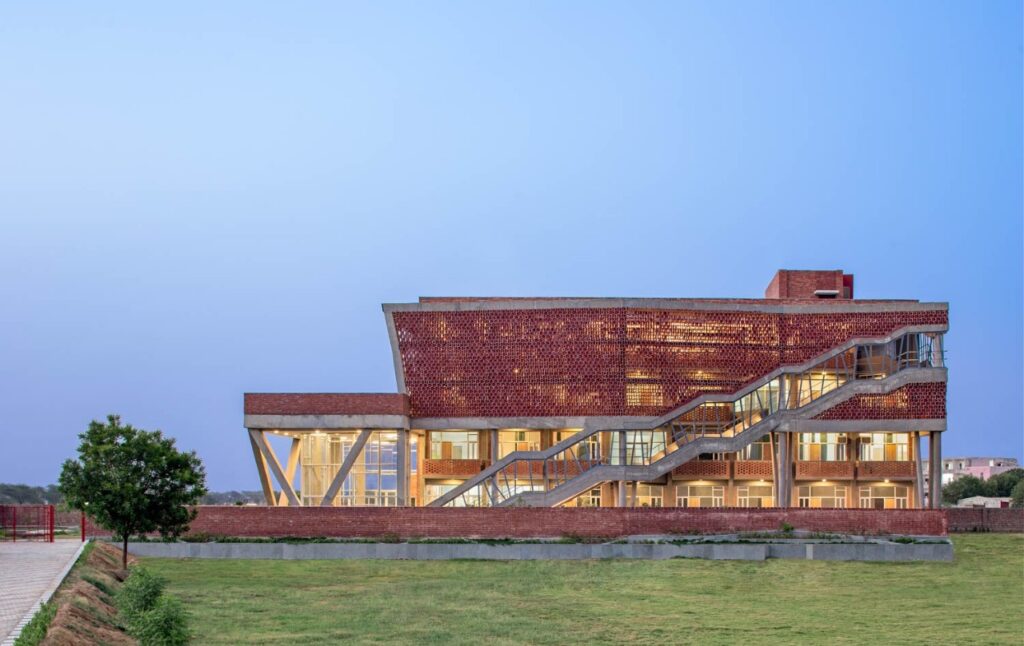
A BTech in Civil Engineering opens up a wide array of career opportunities in both the public and private sectors.
Here are some of the key job roles and sectors where civil engineering graduates can find employment:
Structural Engineer
Design, analyze, and oversee the construction of buildings, bridges, and other structures to ensure they are safe and capable of withstanding various forces.
Geotechnical Engineer
Work on projects related to soil and rock mechanics, including foundations, slopes, retaining structures, and other systems built from or into the earth.
Construction Engineer
Manage and supervise construction projects, ensuring they are completed on time, within budget, and according to specified standards.
Transportation Engineer
Design, plan, and oversee the construction and maintenance of transportation systems, including roads, highways, airports, and railways.
Environmental Engineer
Develop solutions to environmental problems, such as waste disposal, water and air pollution control, and public health issues.
Water Resource Engineer
Design and manage systems for water supply, wastewater treatment, and flood control.
Urban Planner
Develop plans and programs for land use in urban areas, considering factors like population growth, zoning, and infrastructure development.
Surveyor
Measure and map land, water, and airspace boundaries and features to provide data for construction, mapmaking, and other purposes.
Project Manager
Lead and coordinate construction projects from conception to completion, managing budgets, schedules, and teams.
Consulting Engineer
Provide expert advice and services to clients on various civil engineering projects and problems.
Job Opportunities after BTech in Mechanical Engineering

After completing a B.Tech in Mechanical Engineering, numerous job opportunities are available across various industries. B Tech courses in Mechanical Engineering prepare graduates for diverse roles in sectors such as manufacturing, automotive, aerospace, and energy.
Here are some potential career paths:
Design Engineer:
Responsibilities: Designing and developing mechanical components, systems, and products.
Industries: Manufacturing, automotive, aerospace, consumer goods.
Production Engineer:
Responsibilities: Overseeing the manufacturing process, ensuring efficiency, quality control, and managing production schedules.
Industries: Manufacturing, automotive, electronics, consumer goods.
Quality Control Engineer:
Responsibilities: Ensuring products meet quality standards, conducting tests and inspections, implementing quality control systems.
Industries: Manufacturing, automotive, aerospace, consumer goods.
Maintenance Engineer:
Responsibilities: Maintaining and servicing machinery and equipment, troubleshooting issues, implementing maintenance schedules.
Industries: Manufacturing, power plants, oil and gas, automotive.
Project Engineer:
Responsibilities: Managing engineering projects, coordinating with various teams, ensuring project timelines and budgets are met.
Industries: Construction, infrastructure, manufacturing, energy.
R&D Engineer:
Responsibilities: Conducting research and development to innovate and improve products and processes.
Industries: Aerospace, automotive, manufacturing, consumer goods.
Future Scope After B Tech in Information Technology

After completing B.Tech in Information Technology, there are several promising career paths you can consider:
Software Development: This is a popular choice where you can work on designing, coding, testing, and maintaining software applications.
Web Development: Specializing in creating websites and web applications, which includes both front-end and back-end development.
Database Administration: Managing and maintaining databases, ensuring they are secure, efficient, and organized.
Network Engineering: Designing, implementing, and managing computer networks within a company or organization.
Cybersecurity: Protecting computer systems and networks from cyber threats, a rapidly growing field with increasing demand.
Cloud Computing: Working with cloud platforms like AWS, Azure, or Google Cloud to develop, deploy, and manage applications and services.
Data Science and Analytics: Analyzing large datasets to derive insights and make data-driven decisions.
Mobile App Development: Creating applications for mobile devices, either for Android, iOS, or cross-platform.
IT Consulting: Providing advice and expertise to businesses on how to use information technology to achieve their goals.
IT Management: Overseeing IT departments within organizations, ensuring technology aligns with business objectives.
Top Recruiters for BTech Graduates
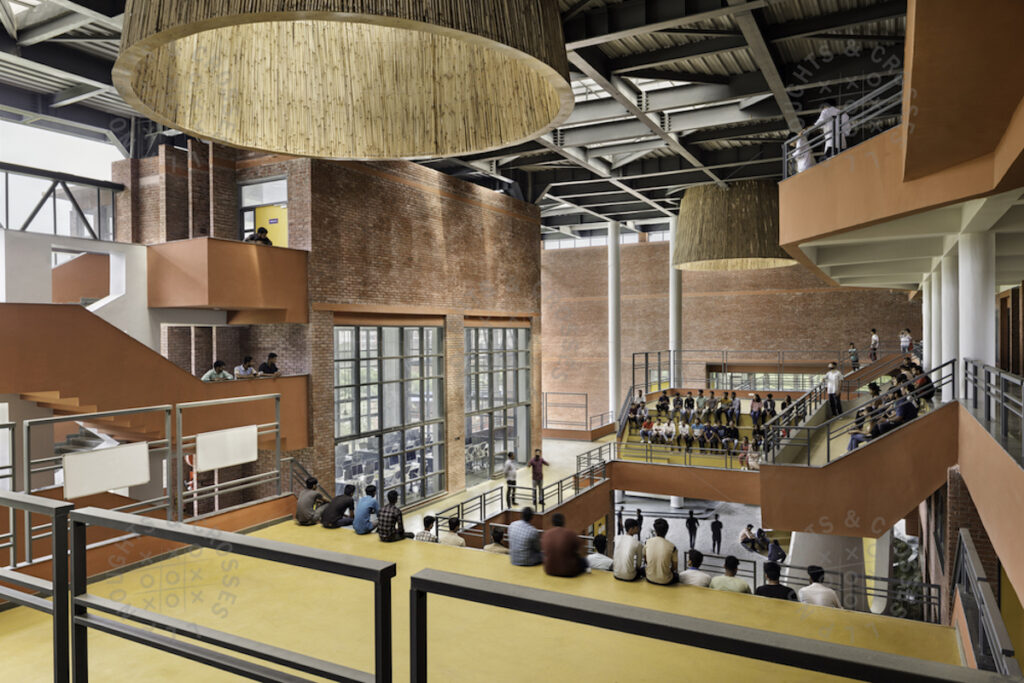
Some of the top recruiters for B Tech degree holders in India include:
IT and Software Services:
Infosys
TCS (Tata Consultancy Services)
Wipro
Cognizant
Accenture
HCL Technologies
Tech Mahindra
Capgemini
Core Engineering:
Larsen & Toubro (L&T)
Siemens
Bosch
General Electric (GE)
Tata Motors
Mahindra & Mahindra
BHEL (Bharat Heavy Electricals Limited)
DRDO (Defence Research and Development Organization)
Automobiles and Manufacturing:
Maruti Suzuki
Tata Motors
Hero MotoCorp
Ashok Leyland
Hyundai Motors
TVS Motors
Honda Cars India
Consulting and Management:
McKinsey & Company
Boston Consulting Group (BCG)
Bain & Company
Deloitte
PwC (PricewaterhouseCoopers)
EY (Ernst & Young)
KPMG
E-commerce and Technology:
Amazon
Flipkart
Paytm
Snapdeal
Ola
Uber
Zomato
Swiggy
Telecommunications:
Reliance Jio
Airtel
Vodafone Idea
Ericsson
Nokia
Energy and Power:
NTPC (National Thermal Power Corporation)
Power Grid Corporation of India
ONGC (Oil and Natural Gas Corporation)
Reliance Industries
Suzlon Energy
Banking and Finance:
ICICI Bank
HDFC Bank
Axis Bank
State Bank of India (SBI)
Goldman Sachs
JP Morgan Chase
Morgan Stanley
Government Sector:
Indian Oil Corporation Limited (IOCL)
Bharat Petroleum Corporation Limited (BPCL)
Hindustan Petroleum Corporation Limited (HPCL)
Indian Railways
ISRO (Indian Space Research Organisation)
DRDO (Defence Research and Development Organisation)
Job Profiles and Salary Packages
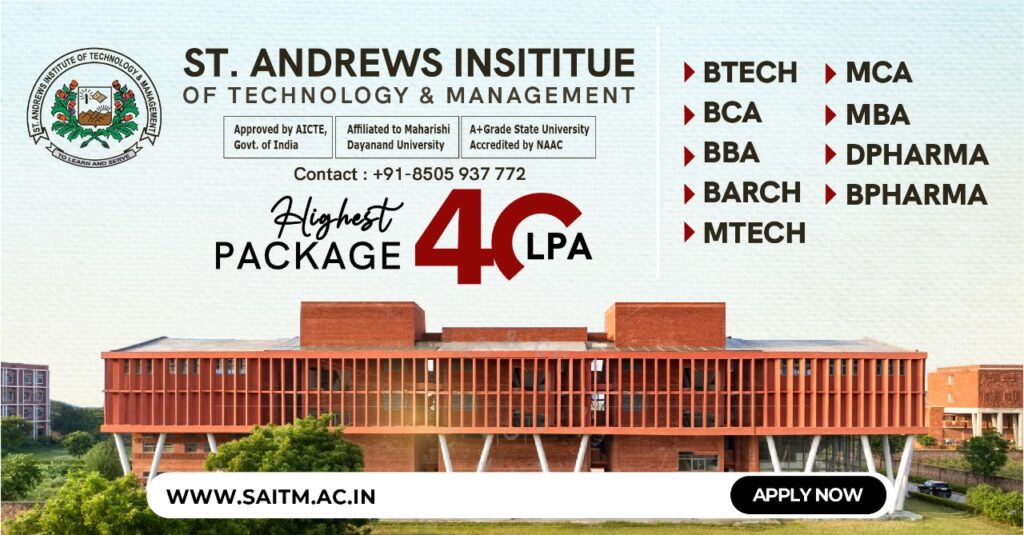
Here’s a breakdown of some common job profiles and their salary packages typically associated with BTech degree holders in India:
Software Engineer/Developer:
Roles: Software Developer, Full Stack Developer, Frontend/Backend Developer
Salary: Entry-level: ₹3-6 lakhs per annum, Mid-level: ₹6-12 lakhs per annum, Senior-level: ₹12-20+ lakhs per annum
Data Analyst/Scientist:
Roles: Data Analyst, Business Analyst, Data Scientist
Salary: Entry-level: ₹4-7 lakhs per annum, Mid-level: ₹7-15 lakhs per annum, Senior-level: ₹15-25+ lakhs per annum
Network Engineer:
Roles: Network Administrator, Network Security Engineer, Systems Engineer
Salary: Entry-level: ₹3-6 lakhs per annum, Mid-level: ₹6-12 lakhs per annum, Senior-level: ₹12-18+ lakhs per annum
Electronics Engineer:
Roles: Electronics Engineer, Embedded Systems Engineer, Hardware Engineer
Salary: Entry-level: ₹3-6 lakhs per annum, Mid-level: ₹6-12 lakhs per annum, Senior-level: ₹12-18+ lakhs per annum
Mechanical Engineer:
Roles: Mechanical Design Engineer, Production Engineer, Quality Control Engineer
Salary: Entry-level: ₹3-6 lakhs per annum, Mid-level: ₹6-12 lakhs per annum, Senior-level: ₹12-18+ lakhs per annum
Civil Engineer:
Roles: Civil Engineer, Structural Engineer, Project Manager
Salary: Entry-level: ₹3-6 lakhs per annum, Mid-level: ₹6-12 lakhs per annum, Senior-level: ₹12-18+ lakhs per annum
Cybersecurity Analyst:
Roles: Cybersecurity Analyst, Information Security Specialist, Ethical Hacker
Salary: Entry-level: ₹4-8 lakhs per annum, Mid-level: ₹8-15 lakhs per annum, Senior-level: ₹15-25+ lakhs per annum
Software Architect/Project Manager:
Roles: Software Architect, Technical Project Manager
Salary: Mid-level: ₹10-20 lakhs per annum, Senior-level: ₹20-30+ lakhs per annum
Career Opportunities After B Tech Degree
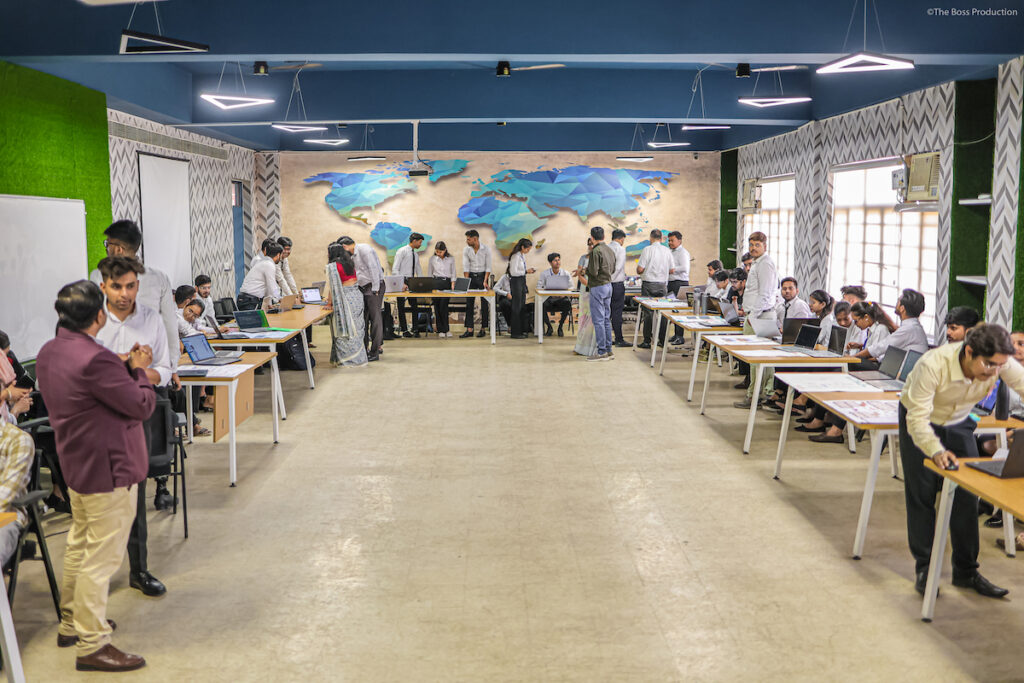
Here’s a detailed look at potential career paths:
Core Engineering Roles:
Software Engineer/Developer: Involves designing, testing, and maintaining software applications. Specializations include web development, mobile app development, and software testing.
Network Engineer: Responsible for designing, implementing, and managing computer networks. Roles include network administration, security, and troubleshooting.
Mechanical Engineer: Focuses on designing and maintaining mechanical systems and machinery in industries such as automotive, aerospace, and manufacturing.
Electrical Engineer: Specializes in designing and maintaining electrical systems, including power generation, transmission, and distribution.
Civil Engineer: Designs and oversees construction projects such as buildings, bridges, and infrastructure projects.
Electronics Engineer: Works with electronic devices and systems, including telecommunications, control systems, and consumer electronics.
Information Technology (IT) and Software Development:
Systems Analyst: Analyzes and designs IT solutions to meet business needs.
Database Administrator: Manages and maintains databases, ensuring data security and availability.
UI/UX Designer: Designs user interfaces and experiences for websites and applications.
Cloud Solutions Architect: Designs and implements cloud-based solutions for businesses.
Cybersecurity Analyst: Protects computer systems and networks from cyber threats and attacks.
Emerging Technologies:
Artificial Intelligence (AI) Engineer: Develops AI systems and applications, including machine learning and natural language processing.
Data Scientist: By Learning data science, data scientist analyzes and interprets complex data to help businesses make informed decisions.
Blockchain Developer: Implements and maintains blockchain technology for secure transactions.
IoT Specialist: Designs and implements solutions using the Internet of Things (IoT) for smart devices and systems.
Management and Consultancy:
Project Manager: Oversees engineering projects from planning to execution, ensuring timelines and budgets are met.
Consultant: Provides expert advice to businesses on technical and engineering matters.
Product Manager: Manages the development and lifecycle of products, ensuring they meet market demands and technical specifications.
Entrepreneurship and Startups:
Starting your own tech company or startup, leveraging technical skills and innovation.
Further Studies and Research:
Pursuing higher education such as MTech, MBA, or PhD for specialization or research opportunities.
Government Jobs:
Opportunities in public sector undertakings (PSUs) through exams like GATE for roles in engineering and technology.
Global Opportunities:
International job opportunities in multinational corporations or research institutions.
Skill Development and Certification:
Continuous learning and certifications in emerging technologies to stay competitive in the job market.
Future Scope after B Tech in Data Science and Artificial Intelligence
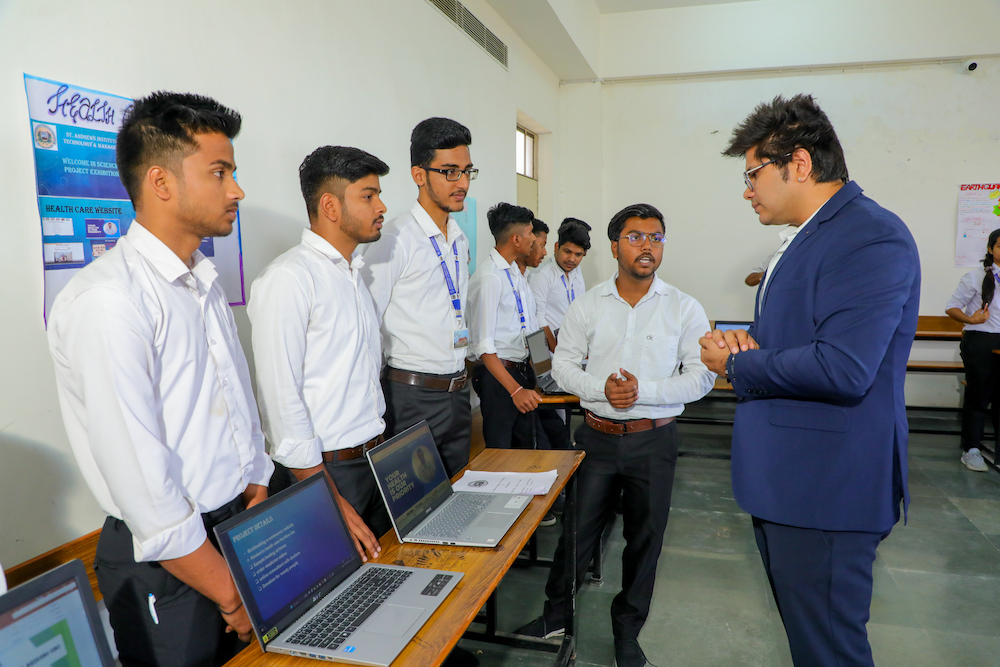
The future scope after completing a B.Tech in Data Science and Artificial Intelligence (AI) is highly promising. B Tech courses in these fields are increasingly valuable due to the growing reliance on data-driven decision-making and automation across various industries.
Here are some potential career paths and opportunities:
Data Scientist
Role: Analyzing complex data sets to extract actionable insights.
Industries: Finance, healthcare, retail, technology, e-commerce.
Growth: High demand due to the critical role of data in strategic business decisions.
Machine Learning Engineer
Role: Developing algorithms and models that enable machines to learn and make decisions.
Industries: Tech companies, autonomous vehicles, healthcare, finance.
Growth: Rapid growth with advancements in AI technologies and automation.
AI Research Scientist
Role: Conducting cutting-edge research to advance the field of AI.
Industries: Academic institutions, research labs, tech giants.
Growth: Continuous innovation in AI requires ongoing research and development.
Data Analyst
Role: Interpreting data to help organizations make data-driven decisions.
Industries: Marketing, finance, government, education.
Growth: Increasing need for data analysis in decision-making processes.
Business Intelligence Developer
Role: Designing and developing business intelligence solutions.
Industries: Business services, consulting firms, IT companies.
Growth: Rising importance of business intelligence for competitive advantage.
AI Product Manager
Role: Overseeing the development and implementation of AI-based products.
Industries: Tech startups, software companies, consumer electronics.
Growth: High demand for skilled managers to lead AI initiatives.
Robotics Engineer
Role: Designing and building robots and automation systems.
Industries: Manufacturing, healthcare, aerospace, logistics.
Growth: Increasing adoption of robotics in various sectors.
Big Data Engineer
Role: Managing and optimizing large-scale data infrastructure.
Industries: Tech companies, telecommunications, finance.
Growth: Expanding data volumes require robust big data solutions.
Natural Language Processing (NLP) Engineer
Role: Developing systems that understand and process human language.
Industries: AI, tech companies, customer service, healthcare.
Growth: Growing use of conversational AI and language translation services.
Computer Vision Engineer
Role: Creating systems that can interpret visual information.
Industries: Autonomous vehicles, security, healthcare, retail.
Growth: Increasing use of computer vision in various applications.
AI Ethics Specialist
Role: Ensuring ethical standards in AI development and deployment.
Industries: Tech companies, government, NGOs, legal firms.
Growth: Rising awareness of ethical implications in AI.
Cloud Solutions Architect
Role: Designing cloud-based AI and data solutions.
Industries: IT services, tech companies, enterprise solutions.
Growth: Increasing migration to cloud platforms for AI applications.
Research and Development (R&D) Engineer
Role: Innovating new technologies and applications in AI and data science.
Industries: Tech companies, research institutions, startups.
Growth: Ongoing need for innovation in the rapidly evolving tech landscape.
Future Trends and Opportunities
Healthcare Innovations: AI in medical diagnostics, personalized medicine, and predictive analytics.
Autonomous Systems: Growth in self-driving cars, drones, and robotics.
Smart Cities: AI-driven solutions for urban planning, traffic management, and sustainability.
Finance and Banking: AI for fraud detection, risk management, and algorithmic trading.
Retail and E-commerce: Personalization, customer behavior analysis, and inventory management using AI.
Environmental Monitoring: Using AI for climate modeling, resource management, and conservation efforts.
B Tech CSE vs B Tech Information Technology
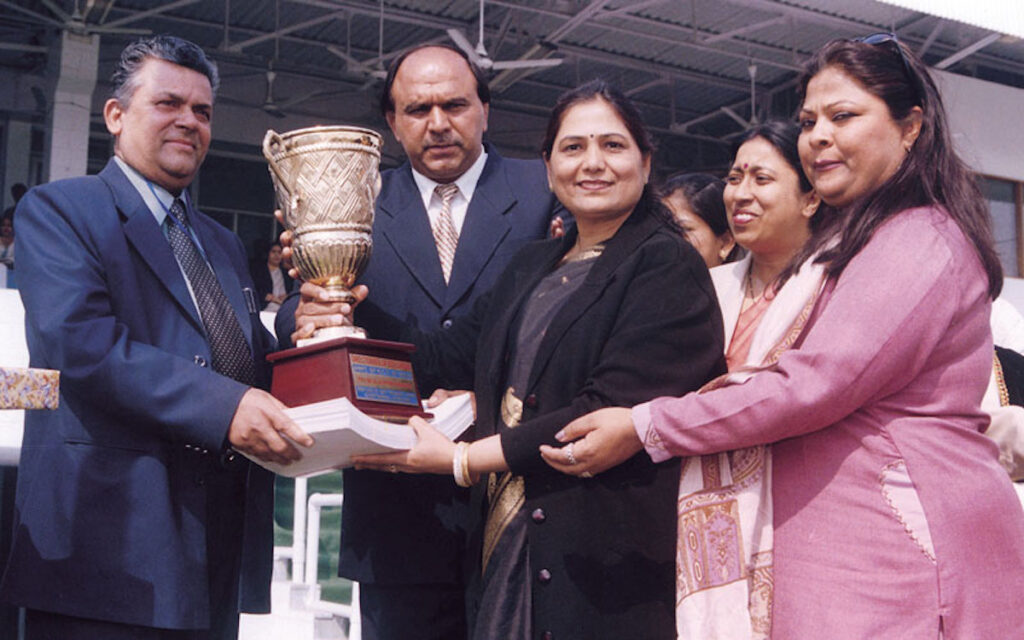
When choosing between a B.Tech in Computer Science Engineering (CSE) and a B.Tech in Information Technology (IT), it’s important to understand the similarities and differences between the two programs, as well as their respective career opportunities.
Similarities
Core Subjects: Both CSE and IT programs cover fundamental computer science topics such as programming, algorithms, data structures, databases, and computer networks.
Career Opportunities: Graduates from both fields often find similar job opportunities in software development, IT services, data analysis, and cybersecurity.
Differences
Curriculum Focus
B.Tech in Computer Science Engineering (CSE)
Broad Scope: Covers a wide range of topics in computer science, including hardware, software, and theoretical aspects.
Subjects: Includes subjects like computer architecture, operating systems, compiler design, artificial intelligence, machine learning, and robotics.
Emphasis: More on the development of new computing technologies and the theoretical foundations of computer science.
B.Tech in Information Technology ,
Narrow Scope: Focuses primarily on the application of computer science principles to solve problems in various domains.
Subjects: Emphasizes subjects like information management, web technologies, network administration, cybersecurity, and software engineering.
Emphasis: More on practical applications and the management of information systems.
Career Paths
CSE Graduates:
Software Development: Creating new software, applications, and systems.
Research and Development: Working on innovative computing solutions.
Higher Studies: Pursuing advanced degrees (M.Tech, PhD) in specialized areas like AI, machine learning, or cybersecurity.
Jobs: Software Engineer, Systems Architect, Data Scientist, AI/ML Engineer, Cybersecurity Analyst.
IT Graduates:
IT Services: Managing and maintaining IT infrastructure and services.
Network Administration: Ensuring efficient operation of network systems.
Database Management: Handling large datasets and database systems.
Jobs: IT Consultant, Network Engineer, Database Administrator, Web Developer, IT Manager.
Industry Demand
CSE: High demand in tech companies, research organizations, and industries focused on innovation.
IT: High demand in IT services, consultancy, corporate IT departments, and industries with a strong focus on information management.
Choosing the Right Program
Interest in Hardware vs. Software: If you are interested in understanding and developing both hardware and software systems, CSE might be a better fit. If you are more focused on software applications and IT infrastructure, IT could be the way to go.
Career Goals: Consider where you see yourself in the future. If you aim to work on cutting-edge technologies and research, CSE might be more suitable. If you prefer managing and implementing IT solutions, IT would be a good choice.
Higher Studies: If you plan to pursue higher studies in specialized areas of computer science, CSE provides a broader foundation. For careers in IT management or consultancy, IT is advantageous.
B Tech CSE vs BCA
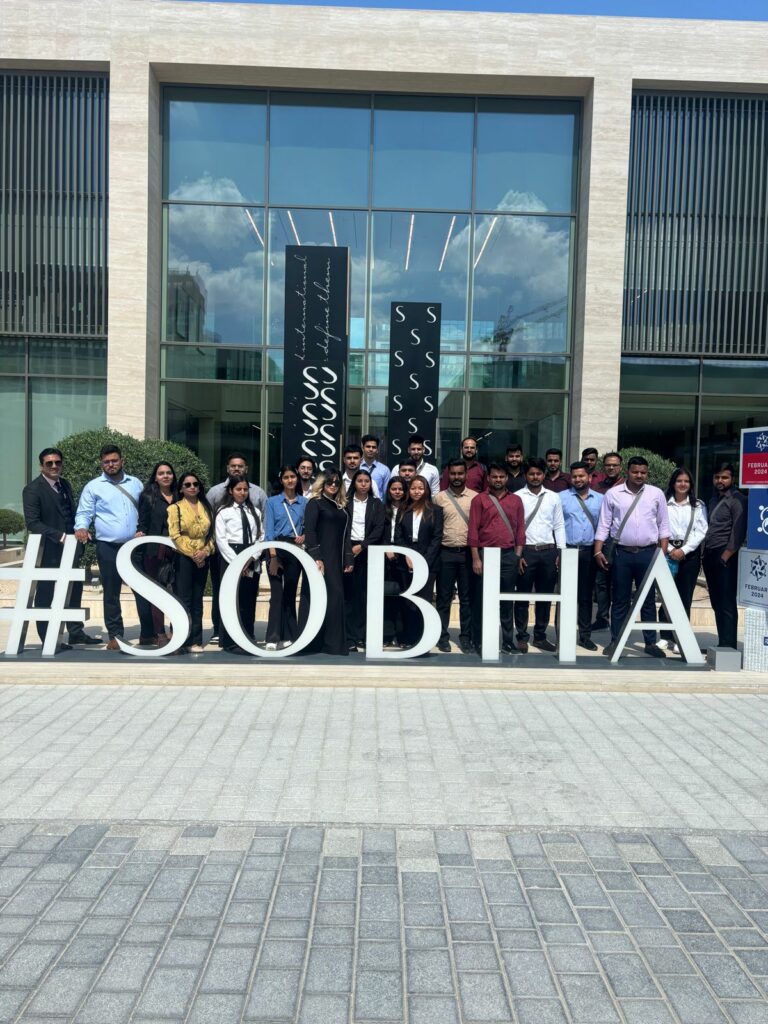
Choosing between B.Tech in Computer Science Engineering (CSE) and BCA (Bachelor of Computer Applications) depends largely on your career goals, interests, and the depth of technical knowledge you seek.
Here’s a comparison to help you decide:
B.Tech in Computer Science Engineering (CSE)
Focus: CSE focuses on a comprehensive understanding of computer systems, hardware, software, and their applications.
Curriculum: Includes core engineering subjects like mathematics, physics, and electronics alongside specialized subjects such as data structures, algorithms, operating systems, database management, and software engineering.
Depth: Provides a deeper understanding of computer science fundamentals, programming languages, and theoretical aspects.
Career Opportunities:
Software Development: Roles in software engineering, web development, mobile app development.
System Administration: Managing computer systems and networks.
Data Science and AI: Opportunities in data analytics, machine learning, artificial intelligence.
Research and Development: Pursue advanced studies and research in computer science.
Job Prospects: Typically higher demand and potentially higher starting salaries compared to BCA due to the deeper technical knowledge and broader scope.
BCA (Bachelor of Computer Applications)
Focus: BCA focuses more on the application of computer systems and software rather than the engineering aspects.
Curriculum: Emphasizes programming languages, software development, database management, and application development.
Depth: Provides practical skills in software development, application management, and IT management.
Career Opportunities:
Software Developer: Developing applications, websites, and software solutions.
System Analyst: Analyzing user requirements and designing IT solutions.
Database Administrator: Managing databases and ensuring data security.
Technical Support: Providing support for software and IT systems.
Job Prospects: Good demand in IT services, software companies, and businesses needing IT solutions. Starting salaries may be slightly lower compared to CSE graduates in technical roles.
Considerations for Choosing:
Technical Depth: If you’re interested in deeply understanding computer science principles, algorithms, and system architecture, B.Tech CSE might be more suitable.
Practical Application: If you prefer hands-on application development, software engineering, and IT management, BCA could be a better fit.
Career Goals: Assess where you see yourself in 5-10 years and choose the program that aligns with your career aspirations.
Further Studies: B.Tech CSE provides a stronger foundation for pursuing higher studies like M.Tech or research in computer science.
FAQs
What is a B.Tech course?
B.Tech, or Bachelor of Technology, is an undergraduate academic degree awarded to students after the completion of a four-year program in engineering.
What are the eligibility criteria for B.Tech?
Students must have completed their 10+2 education with Physics, Chemistry, and Mathematics (PCM) as their main subjects. They must also qualify in relevant entrance exams such as JEE Main, JEE Advanced, or state-level engineering entrance exams.
What are some popular specializations in B.Tech?
Some popular specializations include Computer Science Engineering, Mechanical Engineering, Civil Engineering, Electrical Engineering, Electronics and Communication Engineering, Information Technology, and Chemical Engineering.
What are the top entrance exams for B.Tech admissions?
The top entrance exams include JEE Main, JEE Advanced, BITSAT, VITEEE, SRMJEEE, and state-level exams like MHT CET, WBJEE, and KCET.
What is the difference between B.Tech and BE?
B.Tech (Bachelor of Technology) and BE (Bachelor of Engineering) are similar degrees with slight variations in their focus. B Tech courses are more application-oriented, while BE programs are more theoretically focused. However, in many universities, the distinction is minimal.
Can I pursue a B.Tech course through distance education?
B Tech courses are generally not offered through distance education due to the practical and laboratory requirements. These programs are primarily full-time, on-campus courses.
What are the career prospects after completing a B.Tech?
Graduates can pursue careers in various fields such as software development, engineering design, construction, telecommunications, IT services, research and development, and higher education.
What is the average salary for a B.Tech graduate in India?
The average salary for a B.Tech graduate varies based on the specialization, location, and experience. B Tech courses can lead to entry-level positions offering salaries ranging from ₹3-6 lakhs per annum, while mid-level and senior positions can offer higher packages.
Are there any scholarships available for B.Tech students?
Yes, various scholarships are available from the government, private organizations, and institutions based on merit, need, and specific criteria. B Tech courses often have dedicated scholarships to support students in their academic pursuits.
What are the higher education options after B.Tech?
After completing B.Tech, students can pursue higher education options such as M.Tech (Master of Technology), MBA (Master of Business Administration), MS (Master of Science), or prepare for competitive exams like GATE for further studies and job opportunities in public sector undertakings. B Tech courses provide a strong foundation for these advanced studies and career paths.

